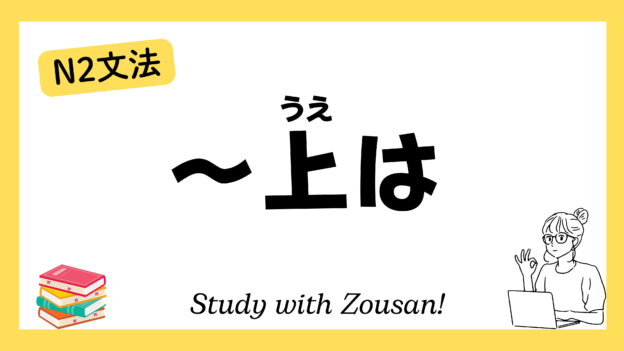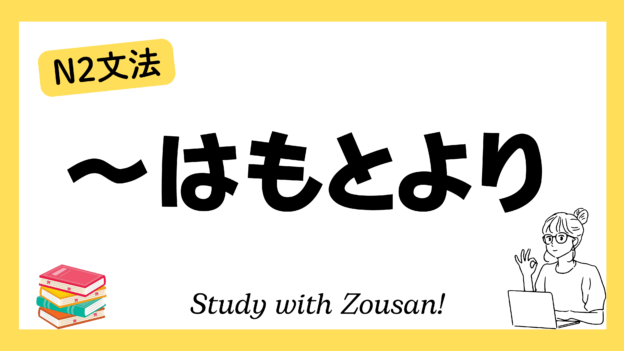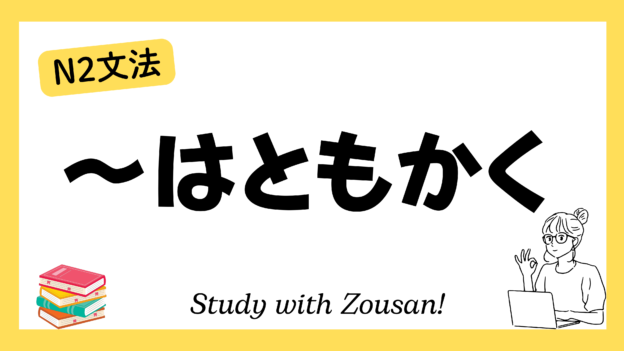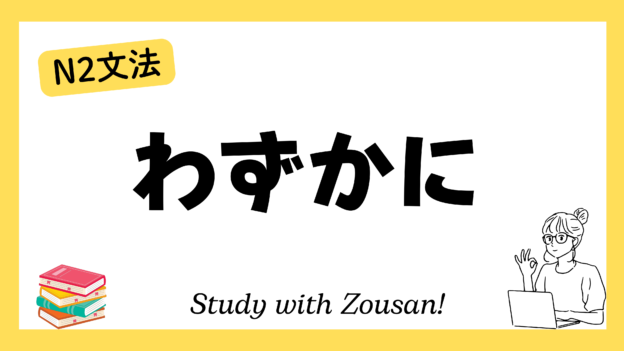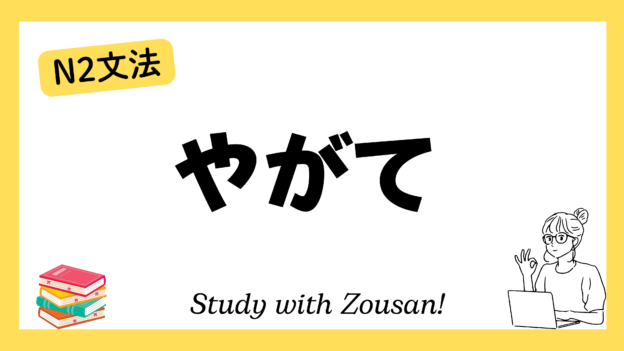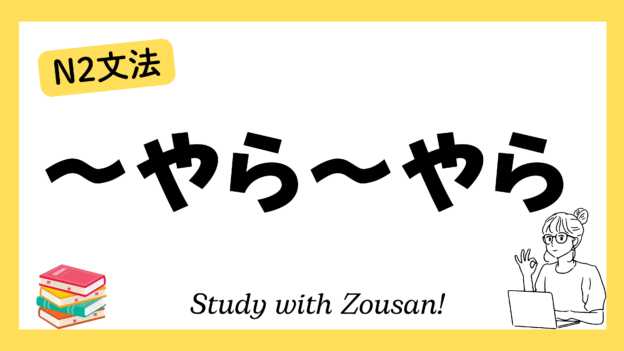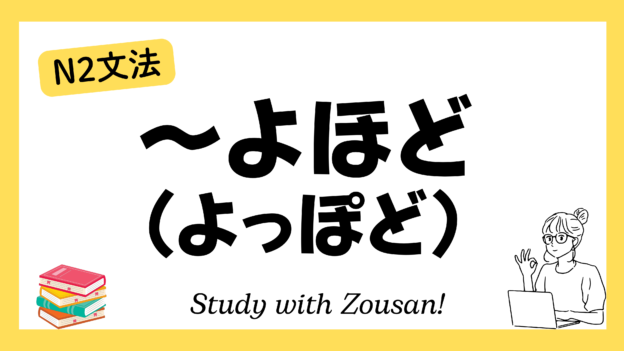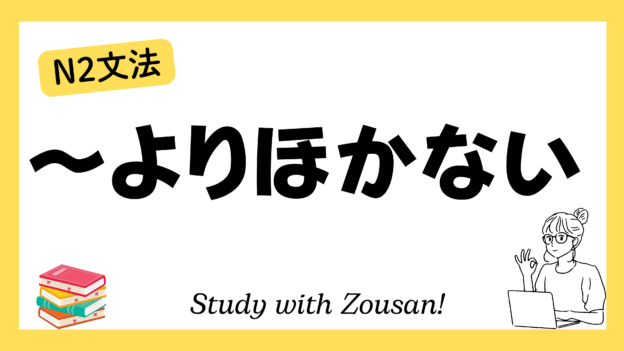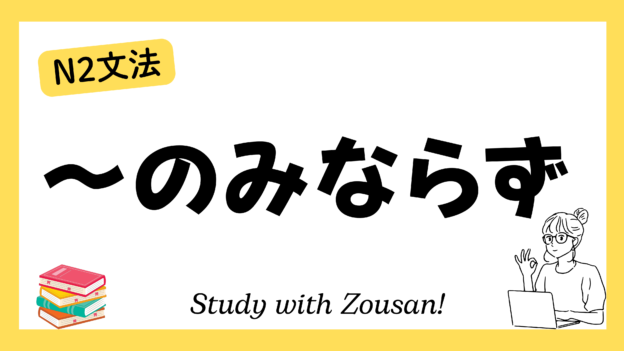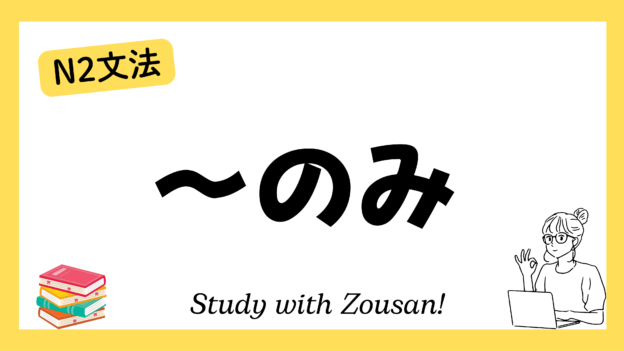Meaning: “Now that…” / “Once…” / “Since…”
The structure ~上は is used to express the meaning “once something has been done, it must be carried through to the end,” or to emphasize the speaker’s determination or commitment to perform an action driven by circumstances. This is a formal expression, often used in serious contexts or when making important decisions.
※Note:
・~上は is commonly used in written language or formal situations, such as in speeches, reports, or when expressing a determination to do something.
・This structure is often paired with action words like “決意する” (decide), “約束する” (promise), or “覚悟する” (prepare oneself), indicating a compulsory action or responsibility after making a decision.
Structure:
| Verb (dictionary form) | + 上は |
| Verb (た form) |
Example:
-
-
-
🌟 試合に出る上は、全力を尽くします。
(しあい に でる うえ は、ぜんりょく を つくします)
Now that I’m participating in the match, I will give it my all. -
🌟 留学する上は、しっかり勉強しなければならない。
(りゅうがく する うえ は、しっかり べんきょう しなければ ならない)
Once I study abroad, I must study hard. -
🌟 親友に約束した上は、絶対に守るつもりだ。
(しんゆう に やくそく した うえ は、ぜったい に まもる つもり だ)
Since I promised my best friend, I absolutely intend to keep it. -
🌟 このプロジェクトを引き受けた上は、最後まで責任を持ってやります。
(この プロジェクト を ひきうけた うえ は、さいご まで せきにん を もって やります)
Since I have taken on this project, I will be responsible until the end. -
🌟 大学に入学した上は、しっかり学びたいと思います。
(だいがく に にゅうがく した うえ は、しっかり まなびたい と おもいます)
Now that I have entered university, I want to study hard. -
🌟 会議で決定した上は、計画を実行しなければならない。
(かいぎ で けってい した うえ は、けいかく を じっこう しなければ ならない)
Since it was decided at the meeting, the plan must be executed. -
🌟 チームのリーダーになった上は、みんなをまとめる責任がある。
(チーム の リーダー に なった うえ は、みんな を まとめる せきにん が ある)
Since I became the team leader, I have the responsibility to unite everyone. -
🌟 結婚する上は、お互いに助け合うことが大切だ。
(けっこん する うえ は、おたがい に たすけあう こと が たいせつ だ)
Once we are married, it’s important to help each other. -
🌟 このプロジェクトに参加する上は、成功させる覚悟です。
(この プロジェクト に さんか する うえ は、せいこう させる かくご です)
Since I’m joining this project, I am determined to make it successful. -
🌟 大事な役割を引き受けた上は、途中で辞めるわけにはいかない。
(だいじ な やくわり を ひきうけた うえ は、とちゅう で やめる わけ に は いかない)
Once I have taken on an important role, I cannot quit halfway.
-
-


